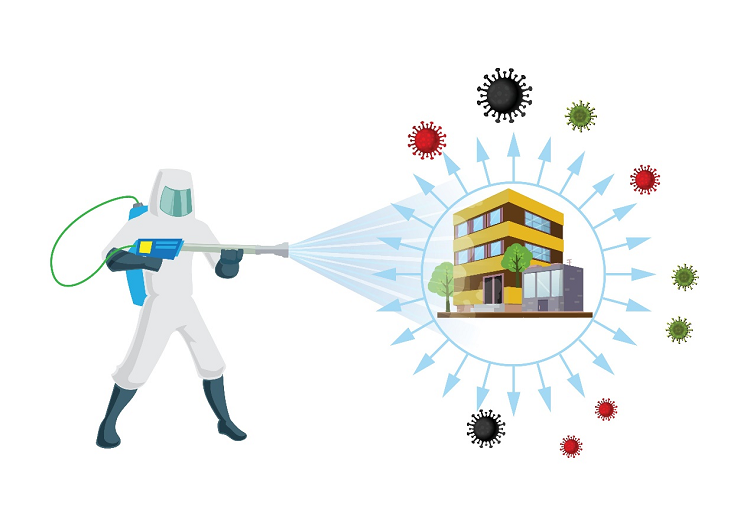
Exhibition time: 17-19 March, 2026 Shanghai, China
 中文
中文

Exhibition time: 17-19 March, 2026 Shanghai, China
 中文
中文

Key words of the passage: biopesticides; chemical; food; agriculture
Increasing awareness regarding the detrimental impacts of synthetic chemicals on agricultural and human health will position biopesticides market at the forefront, given that the product is an ideal alternative to conventional pesticides
Agriculture is considered the backbone of the modern economy, especially in the current scenario where the impending population explosion is set to drastically increase the need for food and feed products. According to estimates from the UN FAO (Food and Agriculture Organization), feed and food production will need to rise by almost 70% by 2050 to accommodate the food needs worldwide.
Crops are vulnerable to attacks from various pests like weeds, insects, and disease, with FAO reports suggesting that almost 20-40% of the crop production worldwide is lost to pests annually. Statistics like these have been placing an immense burden on farmers over the years, driving them to seek solutions for the development of food systems adaptable to evolving needs, most notable pesticides.
While considered a critical component for efficient agricultural production, however, conventional pesticide formulations have become notorious in recent years due to their prominent role in the loss of soil biodiversity, human health as well as several soil organisms. A study published in the Frontiers in Environmental Science in May 2021 showed that the pesticides utilized for agricultural applications in the U.S. pose a significant threat to various organisms important for soil health, biodiversity, and carbon sequestration in soil to combat climate change.
As these detrimental impacts of conventional pesticide formulations become more prominent, reducing the use of these synthetic chemicals has become a common goal for several nations worldwide. The biopesticides market is one of the main sectors to benefit from this shift and is expected to exceed USD 3.3 Billion by 2026, as per estimates from a Global Market Insights Inc. report.
Biopesticides industry to witness lucrative growth opportunities as a key element in the sustainable agriculture movement
The global agricultural sector is currently at a crossroads of transformation. The farming industry, as one of the oldest and most labor-intensive sectors in the world, is heavily reliant on resilient and innovative solutions designed to optimize not just productivity, but more recently sustainability. Conventional agricultural processes have historically placed immense pressure on natural resources and the environment as a whole, thus, intensifying the need for wide-ranging reforms in the agri-sector. Since most of these issues stem from the usage of synthetic pesticides and fertilizer formulations, bioproducts like biopesticides are gaining considerable traction as contributors to the burgeoning sustainable agriculture movement.
This is evident from targeted moves made by entities like Spain-based Seipasa, which announced the expansion of its L’Alcúdia, Valencia-biopesticide production facilities in December 2021. With the addition of 2,000 m2 joined with the existing facilities, the company demonstrated its commitment to enhancing the production, formulation, and logistics of advanced bio-based pesticide products in major markets like Mexico, Spain, Latin America, and the United States, among others.
Meanwhile, in January 2022, popular biopesticides industry contender, Bayer, and MustGrow Biologics inked an exclusive agreement aimed at examining the efficacy of the latter’s biological technologies in prominent agricultural regions like the APAC, Europe, and MEA. As part of the agreement, Bayer would attempt to gain a deeper understanding of MustGrow’s advanced biopesticide technologies and examine their effectiveness as solutions for sustainable crop protection.
Innovations in bioinsecticides to emerge as a major growth strategy for biopesticide market contenders
In recent years, pesticide products and technologies have been facing immense scrutiny from major authorities worldwide, to address the growing social, economic, and environmental challenges facing the agricultural sector. For the biopesticides industry, this has manifested as a growing focus on the development of the bioinsecticides product segment. As per estimates, bioinsecticides market is projected to register a CAGR of nearly 5.5% through 2026.
To that end, biopesticides market player, Syngenta Crop Protection, announced the acquisition of two next-gen bioinsecticide formulations, UniSpore and NemaTrident in January 2022. The move aimed at addressing the growing resistance and eliminate a vast array of pests and insects affecting horticulture and ornamentals, thus providing consumers with more options for sustainable crop protection.
Earlier in June 2021, Corteva Agriscience and Andermatt USA signed a multi-year agreement for two novel biopesticide technologies designed to benefit farmers in the U.S. Under the terms of the agreement, Corteva would obtain an exclusive license to a bioinsecticide formulation based on Helicoverpa armigera nucleopolyhedrovirus, a naturally occurring insecticidal virus. The product, powered by the active ingredient, was developed to target the larvae of corn earworm, African cotton bollworm, and other species, and ensure sustainable and efficient control of these pests in crops like cotton, corn, sorghum, and soybeans.
Gradually making their way into IPM (integrated pest management) practices, biological pesticides are quickly emerging as a way for the agricultural domain to respond to emerging consumer demand for residue-free and organic food products. This trend is corroborated by government initiatives from major economies, like the Brazil National Bio-Input Program and the EU’s Farm to Fork strategy, with the intention of aiding the transition to bio-based pesticides and eliminating the use of traditional agrochemical products over the long run.
Source: Global Market Insights